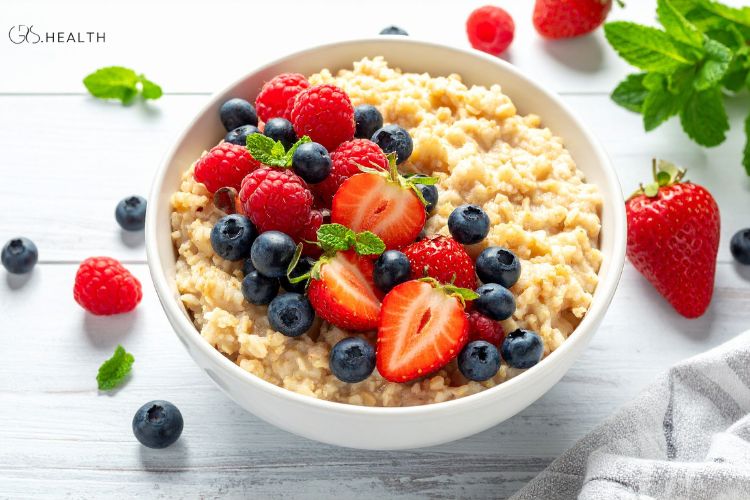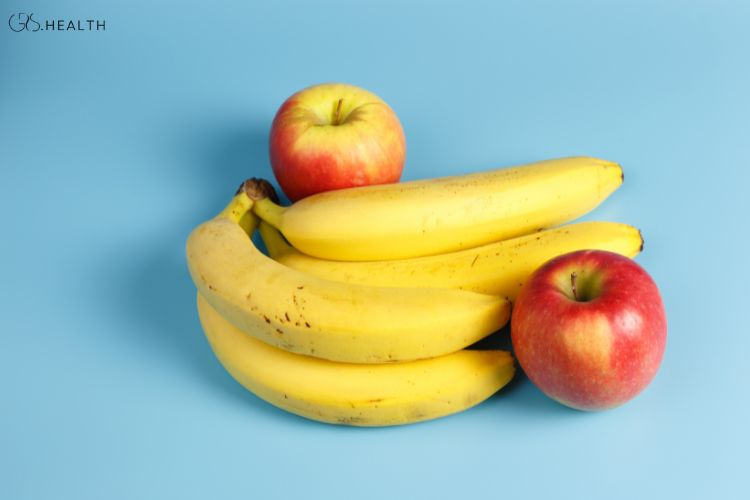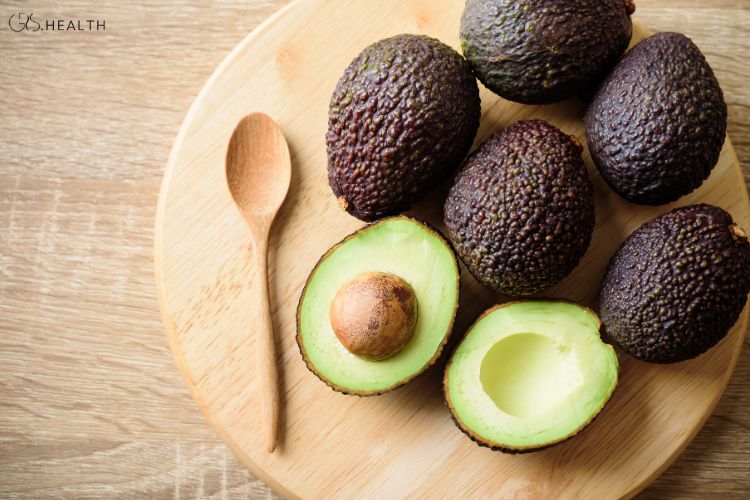Breakfast is often called the most important meal of the day — and scientific research supports this claim. A well-balanced morning meal influences metabolism, glucose control, cognitive function, and satiety throughout the day. Choosing healthy breakfast foods that deliver the right combination of complex carbohydrates, protein, fiber, and healthy fats can improve long-term health outcomes. Studies link regular breakfast consumption to lower risks of obesity, cardiovascular disease, and type 2 diabetes (Harvard School of Public Health, 2022).
The challenge lies in selecting foods that are both nutrient-dense and balanced. This article explores scientifically supported healthy breakfast foods, their nutritional composition, and how they contribute to overall well-being.
Understanding the Science Behind Breakfast Nutrition
Breakfast replenishes glucose after the overnight fast, supporting brain function and physical performance. According to the National Institutes of Health (NIH, 2023), skipping breakfast can disrupt insulin sensitivity and increase stress hormone levels, leading to poorer dietary choices later in the day. The thermic effect of food is also highest in the morning, meaning calories consumed earlier are more efficiently utilized for energy rather than stored as fat.
A nutritionally complete breakfast should include the three major macronutrientsoat— carbohydrates, protein, and fat — along with micronutrients such as B vitamins, iron, calcium, and magnesium. The most healthy breakfast foods are those that combine slow-digesting carbs, lean proteins, and unsaturated fats.
Whole Grains: The Cornerstone of Healthy Breakfast Foods
Whole grains are among the most scientifically validated healthy breakfast foods. They provide sustained energy through complex carbohydrates and are rich in fiber, vitamins, and phytonutrients.
Oats
Oats contain beta-glucan, a soluble fiber known to reduce LDL cholesterol and stabilize blood sugar. A serving of cooked oats (40 g dry oats) provides about 150 calories, 5 g protein, 4 g fiber, and only 2.5 g fat. A meta-analysis in the American Journal of Clinical Nutrition (2021) found that daily oat consumption reduces cardiovascular disease risk by 9%.

Whole Wheat and Quinoa
Whole wheat bread, quinoa, and barley are excellent alternatives. They offer more micronutrients compared to refined grains and a lower glycemic index, supporting steady energy release throughout the morning. Quinoa, in particular, is a complete protein — rare among plant-based foods — providing all nine essential amino acids in just 120 calories per ½ cup cooked serving.
Protein-Rich Foods: Sustaining Satiety and Muscle Health
Protein slows gastric emptying, reduces hunger hormones, and enhances post-meal metabolism. Including high-quality protein sources in healthy breakfast foods has been shown to reduce mid-morning snacking and improve lean muscle retention (Journal of Nutrition, 2020).
Eggs
Eggs are often termed a “complete protein” and contain choline, vital for brain health. Two large eggs supply around 12 g of protein and 140 calories. Contrary to earlier cholesterol concerns, recent meta-analyses indicate that moderate egg consumption (up to one per day) does not increase cardiovascular risk for healthy adults.

Greek Yogurt and Cottage Cheese
Greek yogurt contains double the protein of regular yogurt, offering approximately 15 g per 170 g serving. It’s also rich in calcium and probiotics that support gut microbiota balance. Cottage cheese provides similar benefits, with 13 g protein per 100 g serving and minimal fat in low-fat varieties.
(Read more about Cottage Cheese Health)

Plant-Based Proteins
For those avoiding animal products, soy milk, tofu scrambles, and nut-based protein smoothies are valuable alternatives. Soy contains isoflavones that can positively affect lipid metabolism and cardiovascular health.
Fruits: Natural Sources of Antioxidants and Micronutrients
Adding fruits enhances fiber, vitamins, and phytonutrients in your morning meal. They are essential components of healthy breakfast foods because of their antioxidant capacity and low energy density.
Berries
Blueberries, strawberries, and raspberries are rich in anthocyanins, which reduce oxidative stress and inflammation. A study in Circulation (2019) reported that higher anthocyanin intake is linked to a 32% reduction in heart disease risk. One cup of mixed berries provides about 80 calories and 4 g of fiber.
Bananas and Apples
Bananas offer potassium and quick-digesting carbohydrates ideal for active individuals. Apples, on the other hand, contain pectin a soluble fiber that promotes satiety and lowers cholesterol. A medium apple (95 calories) contributes 14% of the daily fiber requirement.
(If you want to learn more about Apple, We recommend reading this informative article.)

Citrus Fruits
Oranges, grapefruits, and kiwis provide vitamin C and flavonoids that support immune and skin health. Consuming citrus fruits regularly has been shown to lower blood pressure and improve vascular elasticity.
Healthy Fats: Supporting Hormonal and Brain Function
Incorporating moderate amounts of healthy fats into healthy breakfast foods supports cognitive performance and nutrient absorption.
Avocado
Half an avocado (about 120 calories) delivers monounsaturated fatty acids, potassium, and fiber. Research from the Journal of the American Heart Association (2020) shows that replacing saturated fats with avocado reduces LDL cholesterol levels by 10–15%.
(I suggest you read my article on avocado consumption. It provides more information on the topic)

Nuts and Seeds
Almonds, walnuts, chia, and flaxseeds provide omega-3 fatty acids and antioxidants. Chia seeds, for instance, supply 5 g fiber and 2 g protein per tablespoon. These fats also enhance the absorption of fat-soluble vitamins (A, D, E, K).
Olive Oil
A drizzle of extra-virgin olive oil on whole-grain toast or salads adds polyphenols that protect against oxidative stress. The Mediterranean diet, rich in olive oil, has been repeatedly linked to longevity and cognitive health.
Dairy and Dairy Alternatives in Healthy Breakfast Foods
Dairy contributes calcium, vitamin D, and protein essential for bone and muscle maintenance. However, lactose-intolerant individuals can choose fortified plant-based alternatives.(To learn more about Vitamin D benefits please refer to this article)
Milk
A cup of low-fat milk (100 calories) provides 8 g protein, 300 mg calcium, and 100 IU vitamin D. Consuming milk at breakfast improves hydration and supports muscle recovery post-exercise.
Fortified Plant-Based Milks
Soy, almond, and oat milks fortified with calcium and vitamin D offer comparable nutrition for vegans. Soy milk is particularly beneficial, providing 7 g protein per cup.
Fiber and Micronutrients: The Hidden Power of Whole Foods
Fiber promotes digestive health and controls appetite by slowing glucose absorption. Most healthy breakfast foods naturally contain both soluble and insoluble fiber, which lowers cholesterol and supports gut microbiota diversity. A diet high in breakfast fiber is correlated with a 15–20% lower risk of type 2 diabetes (NIH, 2021).
Micronutrients such as magnesium, folate, and iron play vital roles in metabolic pathways. Leafy greens like spinach and kale are excellent additions to smoothies or omelets, adding iron and folate without excess calories.
Beverages: What to Drink with Healthy Breakfast Foods
Hydration in the morning is crucial for maintaining cognitive performance and metabolic efficiency.
Green Tea
Green tea contains catechins that enhance fat oxidation and improve insulin sensitivity. Drinking one to two cups daily supports cardiovascular health and mild caffeine stimulation.
(Read more about green tea benefits)
Coffee
Moderate coffee intake (1–3 cups daily) has been associated with lower risks of type 2 diabetes and liver disease. However, adding excessive sugar or cream negates these benefits.
Smoothies
Blending fruits, vegetables, and protein sources such as yogurt or nut butter creates a nutrient-dense beverage. Smoothies should balance macronutrients to prevent blood sugar spikes.
Sample Balanced Breakfast Combinations
Here are scientifically balanced meal ideas incorporating healthy breakfast foods:
Oatmeal Bowl – Rolled oats with chia seeds, blueberries, and Greek yogurt (approx. 350 kcal)
Whole-Grain Toast & Avocado – Two slices with half an avocado and poached egg (400 kcal)
Smoothie Blend – Spinach, banana, soy milk, almond butter, and protein powder (300–400 kcal)
Cottage Cheese Plate – Cottage cheese, walnuts, and sliced apple (350 kcal)
Mediterranean Breakfast – Whole-grain pita, hummus, olive oil, and tomatoes (450 kcal)
These options provide a balanced ratio of macronutrients and are supported by dietary guidelines from the American Heart Association and the Academy of Nutrition and Dietetics.
The Role of Timing and Portion Size
Beyond choosing healthy breakfast foods, the timing and portion size are critical. Consuming breakfast within 1–2 hours of waking helps optimize insulin response and energy utilization. Large meals late in the morning can elevate postprandial glucose levels. The ideal calorie range for breakfast is typically 300–500 kcal, depending on total daily energy needs.
Intermittent fasting approaches that delay breakfast can be beneficial for some individuals but should not eliminate essential nutrients. Consulting a registered dietitian ensures personalized recommendations based on metabolic health and activity levels.
Common Mistakes to Avoid
Even when selecting healthy breakfast foods, certain habits can undermine their benefits:
Excess sugar intake from flavored yogurts or cereals.
Skipping protein, leading to mid-morning hunger.
Over-reliance on fruit juices, which lack fiber and spike blood sugar.
Neglecting hydration, resulting in reduced focus and fatigue.
Mindful eating practices — eating slowly and without distractions — can improve digestion and nutrient absorption.
Conclusion
Scientific evidence strongly supports the health benefits of eating a balanced breakfast. Incorporating healthy breakfast foods such as whole grains, fruits, lean proteins, and healthy fats can enhance metabolic health, cognitive function, and long-term disease prevention. Prioritizing nutrient-dense, minimally processed options provides sustained energy and supports overall well-being.
Sources
- Harvard T.H. Chan, Healthy Eating Plate
- Harvard Health, What’s a healthy breakfast?
- Mayo Clinic, Breakfast recipes
- Journal of Nutrition, one avocado/day improves antioxidant status & reduces oxidized small, dense LDL
- AJCN, Meta-analysis: oat β-glucan lowers cholesterol










